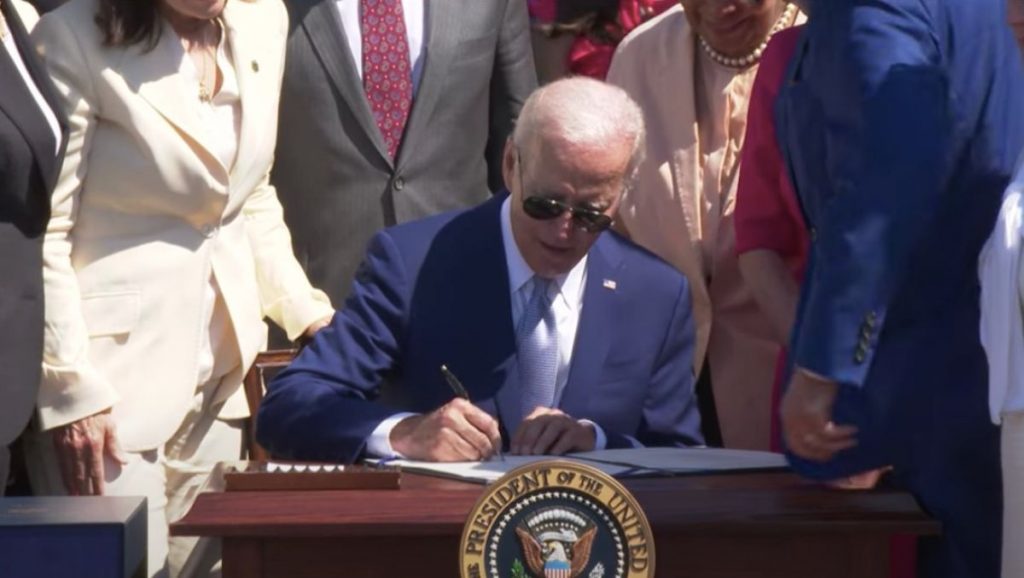The United States is officially on board with operating the International Space Station through 2030.
President Joe Biden signed the Creating Helpful Incentives to Produce Semiconductors (CHIPS) Act into law today (Aug. 9). The act, which Congress approved late last month, is so named because it commits $53 billion to boost the U.S. semiconductor industry. But it also has many other measures, including a NASA authorization bill — the first one to pass Congress in five years.
That authorization bill approves NASA’s participation in the International Space Station (ISS) program through September 2030, an extension of six years.
Related: Biden requests $26 billion budget for NASA in 2023 as agency aims to put astronauts on Mars by 2040
Today’s signing does not guarantee the orbiting lab will live that long; the other ISS partners — the space agencies of Canada, Japan, Europe and Russia — must agree as well.
Canada, Europe and Japan probably will do so, but Russia is a very different story. Many of Russia’s space partnerships have frayed in the wake of its invasion of Ukraine, and Russian officials have recently voiced a desire to exit the ISS program as soon as the nation can get its own space station up and running. (That milestone is not expected until 2028 at the earliest.)
Among other measures, the NASA authorization bill also supports and defines key elements of the agency’s Artemis program, which aims to establish a long-term human presence on and around the moon by the end of the decade.
And, unlike NASA’s famed Apollo program, the moon is not the end goal for Artemis. NASA plans to use the lessons learned during Artemis to take the next giant leap — a crewed mission to Mars, which the agency hopes to launch in the late 2030s or early 2040s.
“We are thrilled that this bipartisan legislation includes the 2022 NASA Authorization Act,” Frank Slazer, president and CEO of the Coalition for Deep Space Exploration, an advocacy group made up of businesses and other space-industry stakeholders, said in an emailed statement today.
“The new law shows that Congress and the White House recognize the importance of space to our nation’s competitiveness and resoundingly back NASA’s goals for space exploration,” Slazer added. “That level of support will pave the way for Americans — and our international partners — to venture to Mars.”
Mike Wall is the author of “Out There (opens in new tab)” (Grand Central Publishing, 2018; illustrated by Karl Tate), a book about the search for alien life. Follow him on Twitter @michaeldwall (opens in new tab). Follow us on Twitter @Spacedotcom (opens in new tab) or on Facebook (opens in new tab).

